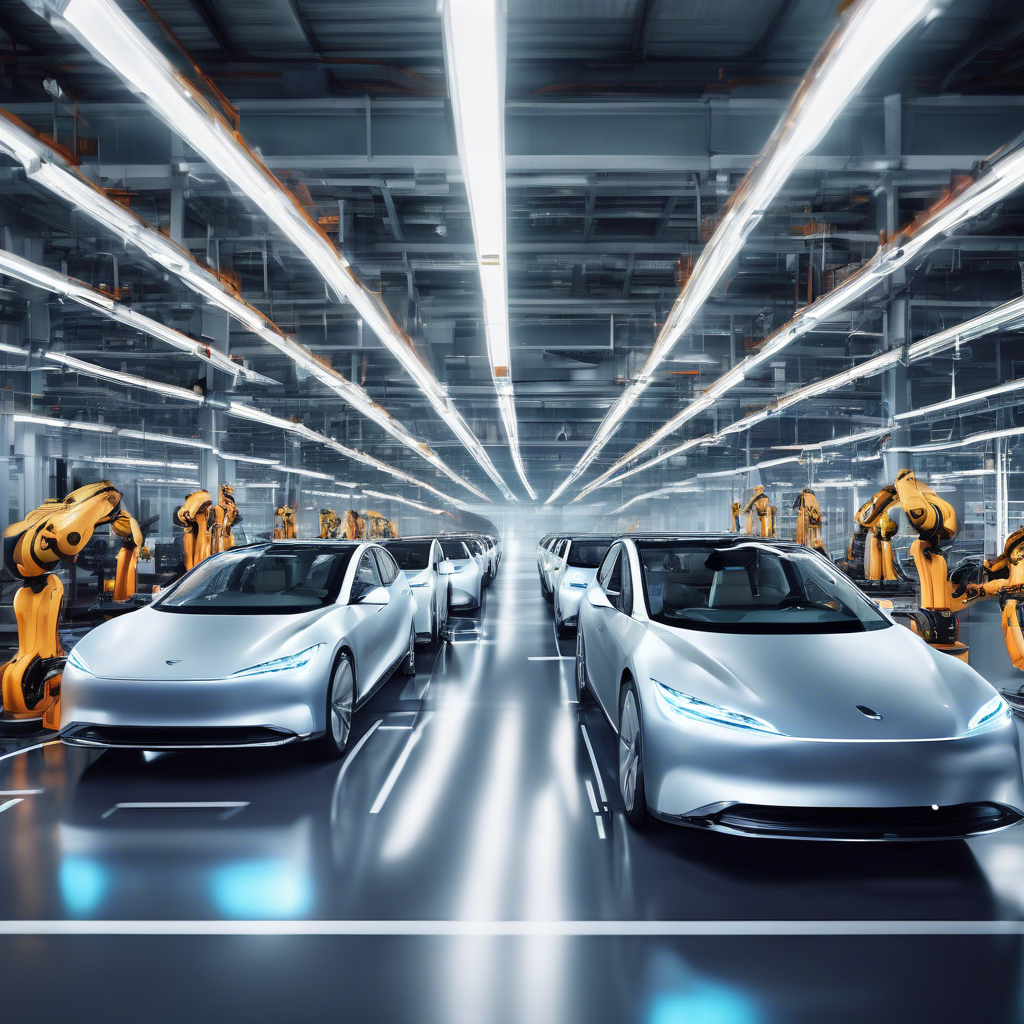China's Electric Vehicle Industry: Global Leadership and Technological Innovation in 2024

Brief news summary
China’s electric vehicle (EV) industry is rapidly transforming the global automotive and technology sectors, led by key companies like NIO and BYD. NIO’s pioneering battery-swapping technology improves user convenience and mitigates range anxiety, while BYD recently surpassed Tesla in sales, highlighting China’s growing international competitiveness. Since 2009, China has invested around $230.9 billion in subsidies, driving a 20% rise in EV exports in 2024 and showcasing strong global demand and manufacturing strength. By 2030, Chinese firms are projected to capture about one-third of the global EV market, supported by advanced supply chains, a thriving ecosystem, and robust government support. The industry’s expansion benefits from incorporating AI, robotics, and autonomous driving technologies. Despite economic and trade challenges, China emphasizes self-reliance through indigenous innovation, including high-performance chip development, harnessing its large STEM talent pool. State-led efforts aim to rival U.S. dominance in emerging tech, positioning China’s EV sector as a key player in innovation and geopolitical competition. Overall, China’s EV industry exemplifies its strategic integration of innovation, expertise, and policy backing to maintain leadership in a fiercely competitive global arena.China's electric vehicle (EV) industry is rapidly reshaping the nation's technological and economic landscape, establishing China as a global leader in this sector. Companies like NIO and BYD exemplify the fusion of artisanal design and advanced technology driving this transformation. These firms are revolutionizing transportation domestically while influencing global automotive and tech industries through innovation and strategic growth. NIO, a key player, has gained attention for innovations like battery swapping technology and long-range EVs, blending practicality with innovation to alleviate common issues such as range anxiety. Battery swapping enables quick replacement of depleted batteries, reducing downtime and enhancing convenience, reflecting NIO’s commitment to overcoming infrastructure challenges and raising standards in EV technology. Complementing NIO, BYD recently surpassed Tesla in sales, highlighting China's competitive edge and expanding global presence. In 2024, China’s EV exports grew by 20%, driven by strong international demand and robust manufacturing capabilities. This growth is supported by substantial government investment, with about $230. 9 billion in subsidies since 2009, accelerating innovation and boosting global competitiveness of Chinese automakers. China's dominance in the global EV market is expected to increase, with projections that Chinese manufacturers will hold roughly one-third of global market share by 2030. This growth stems from advanced supply chains, a dynamic ecosystem, and strong governmental support. The integration of emerging technologies like artificial intelligence (AI), robotics, and autonomous driving furthers rapid advancements, as Chinese firms utilize their supply networks to innovate and implement new technologies across EV platforms, solidifying market leadership. Despite challenges such as domestic economic issues and international trade tensions leading to tariffs and scrutiny over subsidies, Chinese EV companies are focusing increasingly on self-reliance and technological independence.
This is evident in the design and production of indigenous high-performance chips powering EVs and related technologies. Chinese firms are also diversifying into robotics and aerial mobility, leveraging synergies from EV tech to pioneer new products, underscoring broad innovation capacity and a strategic shift towards comprehensive technology ecosystems. China’s industrial strategy is centrally coordinated, emphasizing talent cultivation; millions of STEM graduates annually create a fertile innovation environment supporting rapid EV industry growth and the broader tech sector. This talent pool is a critical asset in the global technology competition. State-led initiatives and investments also aim to challenge US dominance in key future technologies. Although the US has imposed tariffs and export controls to slow China’s progress, China’s EV and technology sectors continue to expand. This dynamic raises significant questions about future innovation leadership and geopolitical influence between these global powers. In summary, China’s EV industry reflects the country’s broader ambitions in technological innovation and economic development. Leading companies like NIO and BYD, backed by significant government subsidies and a vibrant innovation ecosystem, drive advances in EV technology and market expansion. China’s integrated approach, combining innovation, talent cultivation, and strategic industrial policy, positions it to maintain and expand influence in the global EV market and wider tech landscape. Amid ongoing trade tensions and competition, China’s achievements in EVs and related fields will strongly affect the global balance of innovation leadership in coming years.
Watch video about
China's Electric Vehicle Industry: Global Leadership and Technological Innovation in 2024
Try our premium solution and start getting clients — at no cost to you

I'm your Content Creator.
Let’s make a post or video and publish it on any social media — ready?
Hot news

AI Video Surveillance Systems Enhance Public Safe…
In recent years, urban centers worldwide have increasingly adopted artificial intelligence (AI)-powered video surveillance systems to enhance public safety.

AI debt boom pushes US corporate bond sales close…
A necessary component of this site failed to load.

How Will AI Mode Impact Local SEO?
In organic search, disruption has long been standard, but Google’s integration of AI—with AI Overviews (AIO) and AI Mode—marks a fundamental restructuring rather than an incremental change.

How generative AI upends the brand crisis playbook
A brand crisis traditionally followed a predictable path: an initial spark, media coverage, a response, and eventual fading.

Authors File New Lawsuit Against AI Companies See…
Yesterday, six authors filed individual copyright infringement lawsuits in the Northern District of California against Anthropic, OpenAI, Google, Meta, xAI, and Perplexity AI.

Qualcomm Establishes AI R&D Centre in Vietnam
Qualcomm, a global leader in semiconductors and telecommunications equipment, has announced the launch of a new Artificial Intelligence Research and Development (AI R&D) center in Vietnam, highlighting its commitment to accelerating innovation in AI, especially in generative and agentic AI technologies.

Case Study: AI-Driven SEO Success Stories
This case study explores the transformative effects of artificial intelligence (AI) on search engine optimization (SEO) strategies across a variety of businesses.
AI Company
Launch your AI-powered team to automate Marketing, Sales & Growth

and get clients on autopilot — from social media and search engines. No ads needed
Begin getting your first leads today








